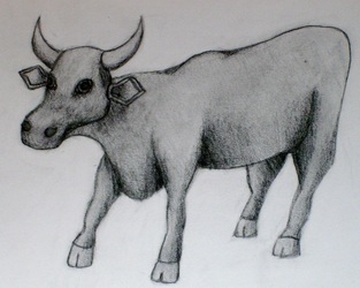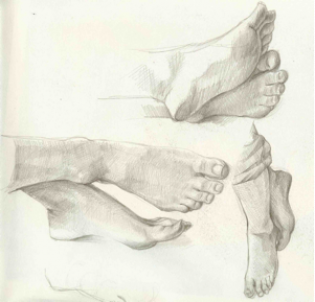|
If you only read one article on creativity in your life then this should be the one. It is interesting, relevant, and gives doable ideas within reach of most of us to build creativity. And clearly there is a need for it. ARTICLE THE CREATIVITY CRISIS Po Bronson & Ashley Merryman 10 July 2010 Like intelligence tests, Torrance’s test—a 90-minute series of discrete tasks, administered by a psychologist—has been taken by millions worldwide in 50 languages. Yet there is one crucial difference between IQ and CQ scores. With intelligence, there is a phenomenon called the Flynn effect—each generation, scores go up about 10 points. Enriched environments are making kids smarter. With creativity, a reverse trend has just been identified and is being reported for the first time here: American creativity scores are falling. Kyung Hee Kim at the College of William & Mary discovered this in May, after analyzing almost 300,000 Torrance scores of children and adults. Kim found creativity scores had been steadily rising, just like IQ scores, until 1990. Since then, creativity scores have consistently inched downward. “It’s very clear, and the decrease is very significant,” Kim says. It is the scores of younger children in America—from kindergarten through sixth grade—for whom the decline is “most serious.” Po Bronson & Ashley Merryman Really you should read the article but here is my bullet list from reading to get you interested. THINGS WE CAN DO TO DEVELOP CREATIVITY • Let kids ask questions and give them freedom to find the answers • Encourage uniqueness, yet provide stability • Be highly responsive to kids' needs • Challenge kids to develop skills • Hardship can create a need to become more flexible • Free play - acting out characters (role playing), voicing someone else's point of view • Paracosms play - fantasies of entire alternative worlds • Tolerate unconventional answers • Allow some detours of curiosity • Create problem/solution exercises • Recognize and nurture creativity • Emphasize idea generation • Use a problem-based learning approach • Fact-finding is a stage in the creative process • Deep research is a stage in the creative process • Solve a problem • Practice creative activities to recruit the brains' creative networks and gradually change neurological patterns • Apply approach as an everyday process of work or school • Process: Fact finding, problem finding, idea finding, solution finding, develop plan, execute plan • Encourage openness, playfulness SOME THINGS THAT COME FROM CREATIVITY • Less despair • Handles stress better • Overcomes the bumps in life their way • More confidence about future • More confidence in their ability to succeed • Confidence in ability to come up with alternatives that would aid them despite the problems • Human ingenuity • Leadership competency • Creative solutions • Original ideas • Control incoming stimuli to brain, blocking out distraction, increasing concentration List any additional things you find.
1 Comment
"Business is creative. It's like painting. You start with a blank canvas. You can paint anything - anything - and there, right there is your first problem. For every good painting you might turn out, there are a zillion bad paintings just aching to drip off your brush. Scared? You should be. You start. You pick a colour. The next colour you choose has to work with the first colour. The third colour has to work with the first and the second. The fourth colour... You get the idea. You're committed now. You absolutely cannot stop. You've invested.... People in business who succeed have swallowed their fear and have set out to create something special, something to make a difference to people's lives.... What really matters is what you create." Richard Branson of Virgin America, Business Stripped Bare, pg 3 5 PURPOSES OF A SKETCHBOOK
Do you have to be an artist to have a sketchbook? Absolutely not!
Most of the reasons an artist uses a sketchbook are applicable to anyone. Here are 5 purposes to your sketchbook.
PRACTICE
repeated effort, proficient exercises, habitual execution
do an exhaustive study of some subject matter, try new mediums, see if you can draw something, experiment, develop skills, make mistakes, challenge yourself,
PERSONALITY character, qualities & behavior, style
visual reflections of your character, qualities and behavoir, record of you and your progress, your dreams, fears,
POINT OF VIEW personal opinion, attitude, appraisal or judgements
life, living, world inside and outside of your head, write text, shows development of ideas
POSSIBILITIES ideas that don't seem feasible, items that may not exist yet, imaginings that haven't taken place yet, information that hasn't been thought yet
imagination, fantasy, experiment, explore ideas,
example - Leonardo diVinci's drawings of machines and new ideas PURSUIT quest and conquest of what's engaging, searching and securing inclinations, there are no rules
it's personal passion on paper
HOW TO USE A SKETCHBOOK
• take it with you everywhere
• use a page a day • don't be inhibited in what you record, WHAT A SKETCHBOOK MIGHT CONTAIN
• sketches
• cartoons • drawing from observation • rough drafts • found objects • clippings • textiles • pen and ink • colored pencil GET CREATIVE • GET A SKETCHBOOK |
Shannon's Studio
�
Archives
March 2023
|

